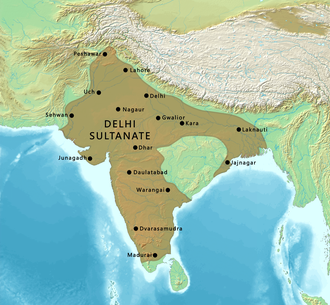Fri, 20 September 2024 05:41:47am
Related Tags: #history #mugals #kingdoms #IndianRule #delhi
Who Was The Most Controversial Sultan of Delhi ? -

Who Was The Most Controversial Sultan of Delhi ? -
Some historical rulers have been widely criticized for their reigns due to perceived cruelty, inefficiency, or negative impact on the kingdom. One such ruler often mentioned in this context is Muhammad bin Tughlaq.
The Missteps of Muhammad bin Tughlaq: The Most Controversial Sultan of Delhi
Muhammad bin Tughlaq, who ruled the Delhi Sultanate from 1325 to 1351, is often remembered as one of the most controversial and enigmatic rulers in Indian history. His reign was marked by ambitious projects and bold decisions that, despite their visionary nature, led to widespread suffering and chaos. Here’s a closer look at why Muhammad bin Tughlaq is frequently cited as one of the least effective and most criticized rulers of India.
Key Points:
-
Ambitious but Misguided Projects:
- Shifting the Capital: One of Tughlaq’s most infamous decisions was moving the capital from Delhi to Daulatabad (in present-day Maharashtra). This move was intended to better control the southern parts of his empire but resulted in immense hardship for the population, many of whom died during the forced migration.
- Token Currency Experiment: Tughlaq introduced a token currency system, using brass and copper coins instead of silver. This poorly executed policy led to widespread counterfeiting and a subsequent economic collapse.
-
Military Expeditions and Failures:
- Failed Conquests: Tughlaq embarked on numerous military campaigns to expand his empire, many of which ended in failure. His unsuccessful expeditions to regions like the Mongol territories drained the treasury and weakened his military.
- Rebellion and Unrest: His harsh policies and high taxes to fund these campaigns led to numerous rebellions. The empire faced constant unrest, diminishing its stability and prosperity.
-
Administrative Challenges:
- Taxation Policies: Tughlaq’s heavy taxation, especially on the agrarian sector, led to widespread discontent among the peasantry. The increased burden on farmers caused famine and depopulation in many areas.
- Lack of Trust: The sultan’s erratic and often contradictory policies eroded trust among his subjects and nobility, further destabilizing his reign.
-
Legacy and Impact:
- Short-Term Gains, Long-Term Losses: While Tughlaq’s reign saw some short-term territorial expansions and administrative changes, the long-term impact was largely negative. His policies left the empire economically weakened and politically unstable.
- Historiographical Views: Historians have varied views on Tughlaq. Some see him as a visionary ruler whose innovative ideas were ahead of their time, while others criticize him for his impracticality and the suffering caused by his reign.
 Map of the Delhi Sultanate under Muhammad bin Tughlaq [Image source: Wikipedia]
Map of the Delhi Sultanate under Muhammad bin Tughlaq [Image source: Wikipedia]
Muhammad bin Tughlaq’s rule is a testament to how even the most well-intentioned and visionary policies can fail without careful planning and consideration of their practical implications. His reign serves as a cautionary tale in the annals of Indian history, illustrating the fine line between ambition and folly.



